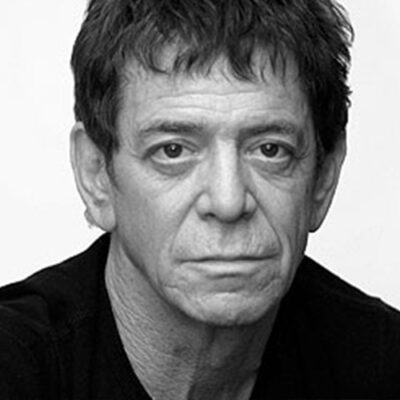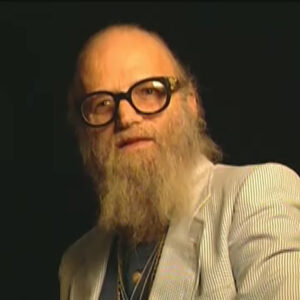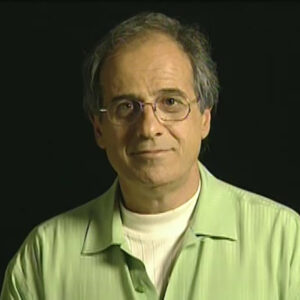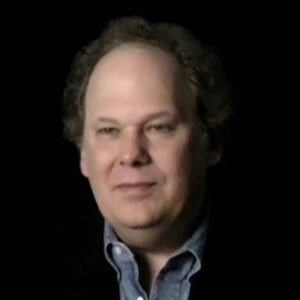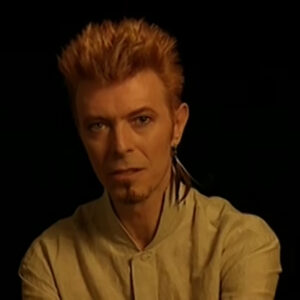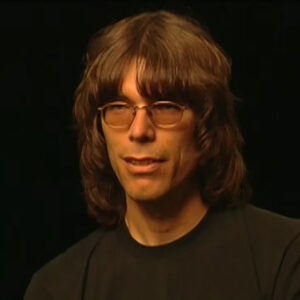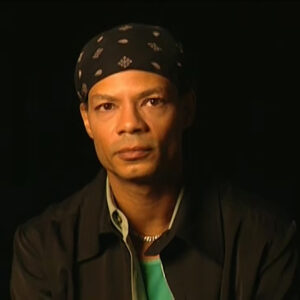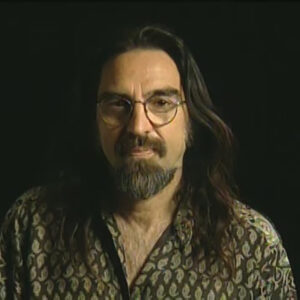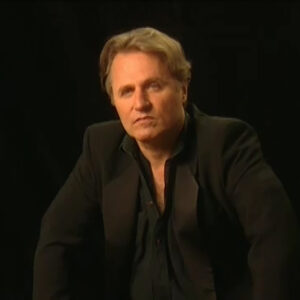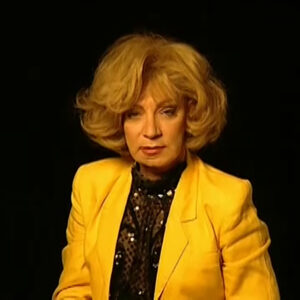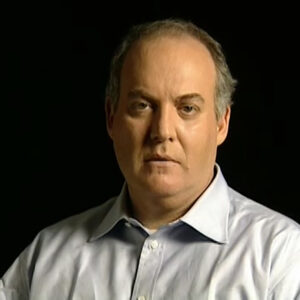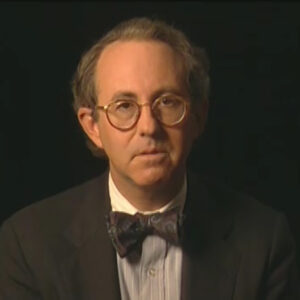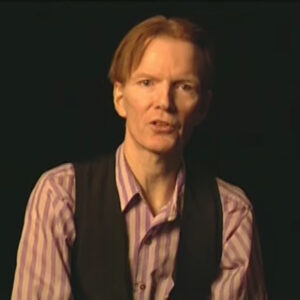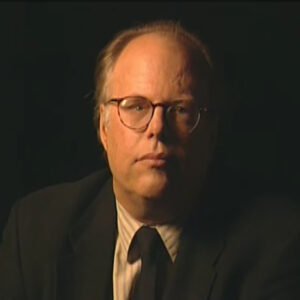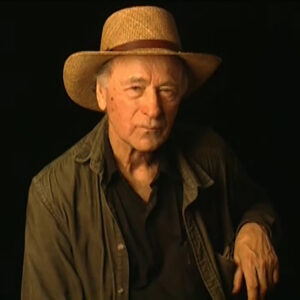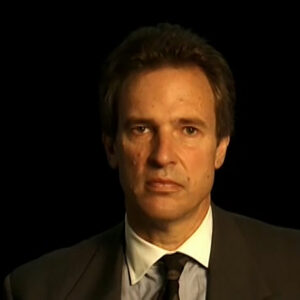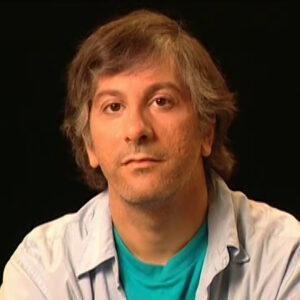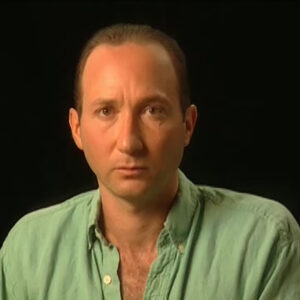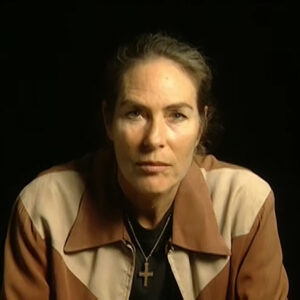Speaker Lou would go in and see a scene Robert Wilson was working on. They talk about a little bit. He’d watch it and then he’d write the song. We’d go into another room with a cassette tape and I’d sit down with his guitar and a pen, write the song, the music, and then I take the tape to the vet.
Speaker And he would write a song.
Speaker Yeah. Yeah. Usually they they they would happen within a few minutes.
Speaker Yeah. The songs were written in a few minutes after he had seen the scene. He would go in and just, just write it down.
Speaker And tell me how that works. Maybe we talk about channeling. It says it’s like what happened channeling.
Speaker I hate that word. I have to use the word.
Speaker We were in a rehearsal studio playing and he stopped and he said, I’ll keep playing that. So I kept playing. He grabbed a piece of paper, grabbed a pen and just started writing non-stop for three minutes, four minutes.
Speaker And at the end of it was Romeo and Juliet and the form that’s on the record. That fast?
Speaker It’s perfect. You want to see it again, I want to see you again, pick up the paper and pretend you’re writing. Just tell that story.
Speaker We were too tired out. You. OK.
Speaker Oh, you deserve to that whole. What are you getting? It was.
Speaker Yeah. That’s a perfect story.
Speaker And many say on the day we were, you know, in the front in the New York really place. Okay, okay, okay, we’re rolling. One second. You guys ready?
Speaker During rehearsals for The New York Record, Lou and I were in a rehearsal studio playing and he stopped suddenly and he said, oh, keep playing that riff. Keep playing exactly what you’re playing. And he reached for paper and reached for a pen and just started writing nonstop. And he wrote for, like, four minutes. And. And he was done. And there was Romeo and Juliet and the form that’s on the record.
Speaker Perfect. Perfect. Beautiful. Great.
Speaker Tell me a little bit about magic and loss of the virus. Where where was that? Where where was Ella taking place?
Speaker Even technically, the studios of the New York I mean, you were you were covered. Yeah, yeah.
Speaker That record was written entirely in New York. Magic, it was magic and lost his magic and loss. What was in 1992?
Speaker And that was written entirely in New York. In a matter of time span of about two weeks.
Speaker Where should I go from there? Well, do you think. Do you think this whole thing was somehow right?
Speaker Oh, if I knew I’d do it. I don’t know. If I knew how to write like that, I’d do it.
Speaker I don’t know how he does in two weeks, but it was there. I mean, I was I was there for the process. He’d call me as he got things done. We wrote some of the stuff together. Some of the music I had written prior to working on that record and some songs like Dreman. He called me up at three a.m. and read these lyrics to me that he had just finished.
Speaker And I picked up a guitar and that music was the first thing that I played. So the next day we went and we put it together and there was that song dreman from Magic and loss song Magic and lost the music for that was done prior to the record.
Speaker And that was something we played together out at his country house.
Speaker And he put words to that. Did you know that? No more, Rita.
Speaker And let’s just go back a minute to time rocker.
Speaker One other thing, though, on magic and loss, I didn’t know Doc Pomus and I didn’t know Rita, but a friend of mine, a young guitar player in a band that I produced called Betty Goes Green, was diagnosed with cancer at age 24. And while he was in the hospital going through this, he read, listen to that record. And one of the things he said to me is, did Lou ever have cancer? And I said, no. And he said, well, help.
Speaker How is it possible that he knows everyone sympathizes, but no one how could he know so truly what it’s about and what it’s like?
Speaker He died at age 25, actually unfortunate.
Speaker Good. Good guy.
Speaker When you say you wrote the song, that means basically music, I don’t write any of the words, Lou has all the words. From what I’ve seen, just music. I write music, Lou, either like some of what I had previously done or some of it came just spontaneously as we worked on the record, as I read the lyrics.
Speaker Do you think I mean, this perception sometimes very tense. Stand away from him. What is it like working with someone like that? What’s it like working with. It’s a collaborative.
Speaker It’s very intense and like that sometimes you want to stand back from it. He even stands back from himself in that he kind of creates a third person.
Speaker Oh, the singer. I like what the singer did there. Oh, I don’t like what the singer did there, but that’s really good. What he did was his idea of what he’s trying to do.
Speaker There is great things like that.
Speaker Laughing Lethargy.
Speaker Can we do that again? Yeah, yeah.
Speaker The words again, the words, the words exist can exist on their own completely. What I do with Lewis is work on the song when he’s in there singing it, the inflection. How those words come across and how they’re tied in to the music.
Speaker And tell me that story again about Saddam. It gets very intense where he was living. And he stands up for Self and himself in the IT today.
Speaker Yeah, it’s it’s it’s very intense working.
Speaker Working with Lou, and I think it’s even intense for him to the point where he creates a third person, actually, he’ll say, oh, I like what the singer did there, you know? Oh, I don’t like that idea of what he’s he’s doing or he talks about his his own work in the third person.
Speaker Why did.
Speaker I think love is this thing about playing guitar. Those become kind of a great guitarist himself. And he’s saying about his guitar playing.
Speaker Let me think something.
Speaker Something wonderful tradeoffs to you. You take something, a certain direction that goes back to him. Body language should go this way.
Speaker That’s that’s that’s true. That it’s it’s hard to analyze that or talk about that that way.
Speaker It’s just, you know, playing with them. You get the sense of where are the songs going? What kind of mood or presentation that that song is gonna have. And you can tell that, by the way, he moves a muscle twitch, you know. Oh, OK. And here’s where we’re going. This this time, he’s always been a great guitar player. When we when we initially met and started playing, Lou is very much more than anyone else I’ve ever known into the sound of the electric guitar.
Speaker And we would sit for hours a being this guitar through that amp, this pickup in that kind of wood tweaked up with a quarter of a turn on this side of the pickup. And all these variations on that.
Speaker And I became very fascinated in this as well through that. But he’s got the sound, Lou. Lou has the guitar, the electric guitar sound as good as anything I’ve ever heard.
Speaker Beautiful. No, I think it’s from a jumper. Yeah, no, I think that’s great.
Speaker Tell me a little as Tony that’s also what’s it like for the plane? Well, it’s some of the Delbert’s songs that you play. She said so much history to them.
Speaker And then there’s sort of a new interpretation, I guess what you guys are doing them.
Speaker But, you know, just for me, I always think of Sterling. I place Sterling’s part and I always think of Sterling.
Speaker That’s standard that you can just say I’m playing a again, the same. I’m playing the guitar.
Speaker I think when I play the guitar on the Velvet Underground songs that we do, I always think of Sterling Morrison because I play his parts.
Speaker And you think of how he play what you just just him the him the man having met him and missing him. He was he was great.
Speaker A great guitar player with with a really interesting view.
Speaker I hate that. Really interesting. She’s stirred again by Sterling. I play Sterling.
Speaker I don’t know what else to say, but that’s really what I think. I mean, that’s kind of all I think about it, because it’s like being.
Speaker You know the songs for me, it’s like, well, this isn’t for tape. This is just for you. I mean, the songs for me, it’s kind of like playing in a cover band compared to doing, you know, the songs from New York or Magic and Loss. So when I yeah. When I play the Velvet Underground songs, just think of them.
Speaker I love his cues. He had to he was doing a solo in the Velvet Underground reunion and. OK. Sterling Morrison was doing a solo when the Velvet Underground reunited for that record. And the band had asked him, you know, you’ve got to let us know when you’re done with the solo cures or something. And so at the next show, at the end of the solo, he was playing along and he never looked at any when he just threw his leg out. And that was the cue. I thought that was so funny.
Speaker Just say yeah for me, when I play the Velvet Underground songs with Lou, what runs through my mind is Sterling Morrison. I’m playing his parts and I can’t help but think of him.
Speaker Are there any song like. You’re involved with the New York album. Yeah. Tell me tell me about that.
Speaker Well, that’s that Romeo and Juliet story.
Speaker What other kids story is that the reaction to that element of it seemed to be a real turnaround for. Would you say?
Speaker Well, that’s difficult because for me, it was no turnaround. It was the first record I’d done with him. So I was seeing, you know, Lou Reed from that point on and whatever success came from that record was.
Speaker Incredible reaction to that.
Speaker Surprised, no, happy. Yes.
Speaker Against the question. Right. Uh.
Speaker Right. The reaction to the New York record and how well the record did. I don’t think came as a surprise. I think he was very happy about it.
Speaker Anything else about that?
Speaker He said the toilet.
Speaker Yeah, that’s well, I didn’t work on that record.
Speaker Just the power trio. Definitely alive.
Speaker Yeah, I was working on something else during the making of Set The Twilight Reeling, but so I didn’t work on that record. But Lou and I got together to work on a play for Robert Wilson, Time rocker, actually, while they were touring.
Speaker Why didn’t we stop for a while? Anyway, you guys, that was to finish it.
Speaker That was the third and final phase of making that play. It kind of happened in three stages. There was the initial audition period where we picked who was gonna be in it. And then there was the first phase where the initial writing of the play was complete and the ideas were then being put together at the rehearsal stage. That’s. And Lou came in for that. That’s when he started writing. And it was during then we had some guitars in my room.
Speaker He came down, we started playing and and I was gonna be free after that.
Speaker He said, oh, you know, let’s go on the road, you know, play this record. And I said, yeah, great, great love, too.
Speaker So I went on the road for for that record with the time. All right.
Speaker Just say something else about the writing process there. It’s amazing. Bob, look at the scene that I wrote and writes, Spencer.
Speaker Well, what else do you know of any other musicians?
Speaker No. The only time you get to see that is with a great instrumentalist. That’s improving his way.
Speaker Again, make the comparison the only.
Speaker OK. The only way I can compare the speed of Lou’s writing is and the way it happens is to is to compare it to a great musician improvising where those ideas are coming up at the moment. And at the moment they exist, whether they’re recorded or not. Who knows? But they’re there. And that’s the way he writes it. He gets the idea.
Speaker And it I heard that noise just just say.
Speaker You said the only the only the only thing I can compare that to the Lou’s writing and the speed at which he does it is to compare it to a great musician improvising at the moment. He seems to get an idea again.
Speaker Again, you said okay.
Speaker Does this sound? Mr..
Speaker When it comes to lose writing and the way the way he works and the speed at which he works, I can only compare it to the great musician improvising through a tune. The idea comes at that moment of from wherever channeled through somehow. He gets an idea and he just comes out on paper. It’s astonishing. And it still amazes me to this day.
Speaker Karen.
Speaker My first sentence, and I think that as as the relationships are well, there actually there’s a very funny story about that, that I could tell the first time I met Lou.
Speaker Then the night before my apartment had been broken into. All my guitar is stolen. He had heard about this. He was coming to town. And when I met him, he handed me a guitar. I was I was blown away. One of the very funny things he said was he leaned over and he said, you can keep it as long as you use it. Little did he know be on his next few records. But a year after that, he phoned me up and another exciting moment for me phoned me up and he said, Yeah, come on down here. You’re coming down this weekend. Could you bring that guitar?
Speaker And I thought, oh, oh, give the guitar back. What a pity.
Speaker So I went down, brought the guitar. And in fact, we just wanted to get together and play. And we’ve been playing ever since.
Speaker Perfect. I hesitated and said, I want to cut you off. That’s great. Anything else?
Speaker Carige.
Speaker How do you understand this? These are thoughts on how do deals with sort of all the adulation and the fans. And it’s it’s I’ve watched it kind of. Well, it’s worth ways and sometimes it’s annoying. And again, it’s very appreciated.
Speaker What’s it like in the region? I wouldn’t even know what to say about that.
Speaker What’s he saying about the fans are very similar. They seem to be people that come to concerts all over the world. They travel just to see these concerts like that group. Those three girls.
Speaker Yeah, they’re wonderful. That’s great.
Speaker What’s it like to be.
Speaker Well, you have to answer that question for like, how does Lou deal with.
Speaker It’s too hard. Yeah.
Speaker I don’t know how to help, she doesn’t answer anything. Any other story, you know, like the one you just told us. Anything else that.
Speaker Song, speed and songwriting. If that’s where you’re. Being very helpful here. And the other, I guess the Romeo and Juliet story is the perfect for us.
Speaker And he was saying on the tour. So he’s like, really?
Speaker We’re probably going to use subsidies for that. Really. Any comments on that song? Some weight built up at the end. No, no.
Speaker Nothing. No, I don’t have an interesting. I like the song. And I love that ending it. It’s so much fun to play. Why? Why? I don’t know. It’s sort of like, why is drinking fun?
Speaker It’s like it’s the way it makes you feel. And I feel it’s it’s really fun playing his music. Not just that song, but but all of them.
Speaker That’s just makes me think of it. Is there any particular song that’s the most fun to play? Oh, yeah, it’s always great.
Speaker It’s hard because there’s so many.
Speaker I know, and like all of.
Speaker You know, I think he deserves rapper, rapper Herts man, especially on acoustic.
Speaker You see more sort of Thai rocker stuff. More collaboration like the.
Speaker Boy, I wouldn’t even have a clue where Lou’s going to go in the future. Every single time we’ve worked together, he surprised me with new ideas, with things that I wouldn’t expect.
Speaker So if anything, I expect to be unexpected and surprised.
Speaker His sense of humor. Playing with him since New York. Yeah, New York. You say it for me.
Speaker You got your magic and loss to us before, you know.
Speaker It was New York, Drella. Magic and loss. The View you set the twilight reeling. The play, the readings that say that.
Speaker And you say I mean, the range is so low in the sense of what we’re talking about here with this amazing range.
Speaker Give me the range.
Speaker I couldn’t even guess what Lou’s going to do next or where he’s going. The range just in the 10 years that I’ve worked with him since the New York Record, through Drella, through magic and loss, through The View, through Time Rocker and his readings, and it’s impossible to say where he’s going. I get surprised at every every year it changes.

